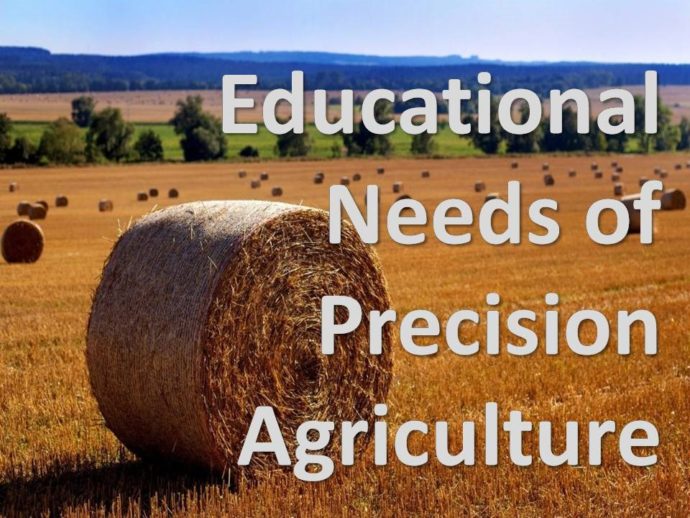Precision agriculture (PA) constitutes a dynamic production method which is gaining attention in several parts of the world. Its environmental and economic sustainability has been examined in terms of its ability to reduce the adverse effects of agrochemical use—by regulating their application to the levels needed at the land parcel level—and of its contribution to higher incomes and profitability. At the social level, PA has been linked to collective action although little insight is available regarding the role of various actors and education.
However, a very important issue is also to tackle PA through an assessment of the attitudes of farmers towards the elements of its sustainability and of their educational needs. Kountios et al. (2018) published a very interesting paper analyzing survey data of a sample of farmers in Greece showed that most young farmers were not familiar with PA.
The analysis revealed that farmers with prior knowledge about PA had significantly clearer views about the elements of sustainability of PA compared to those who had never heard about PA. It was also found that the educational needs of young farmers differed from the rest ones, which shows that the design of training programs for young farmers needs specific adjustments to accommodate the different aspirations and needs. Important educational needs were also detected, with group and individual methods being the most preferred ones for education and information campaigns.
The results of the analysis could be of use for the design of Common Agricultural Policy Pillar II measures for the promotion of PA targeting to specific audiences and actors. However, the findings of this study could be of more policy relevance if they were supplemented with real-life data and findings regarding the actual sustainability of PA. The assessment and quantification of environmental benefits of PA is almost totally lacking in literature and so are comprehensive studies about the true economic performance of PA methods in Greece at the farm level; as a result, Greek farmers are unsure about what to expect from PA. Even though the study did not reveal any cultural or social constraints affecting the diffusion of PA, which verifies its social sustainability, PA does not appear to be alluring since no external actors are available to promote it. Hence, ‘successful’ farmers, consultants and the state are not deemed enough to support the promotion of PA. Here the role of private actors is particularly important as highly trained managers could provide specialized PA services to farmers thus contributing to further diffusion of PA.
Source (https://link.springer.com/article/10.1007/s11119-017-9537-2): Kountios, G., Ragkos, A., Bournaris, T., Papadavid, G., & Michailidis, A. (2018). Educational needs and perceptions of the sustainability of precision agriculture: Survey evidence from Greece. Precision Agriculture, 19(3), 537-554.

